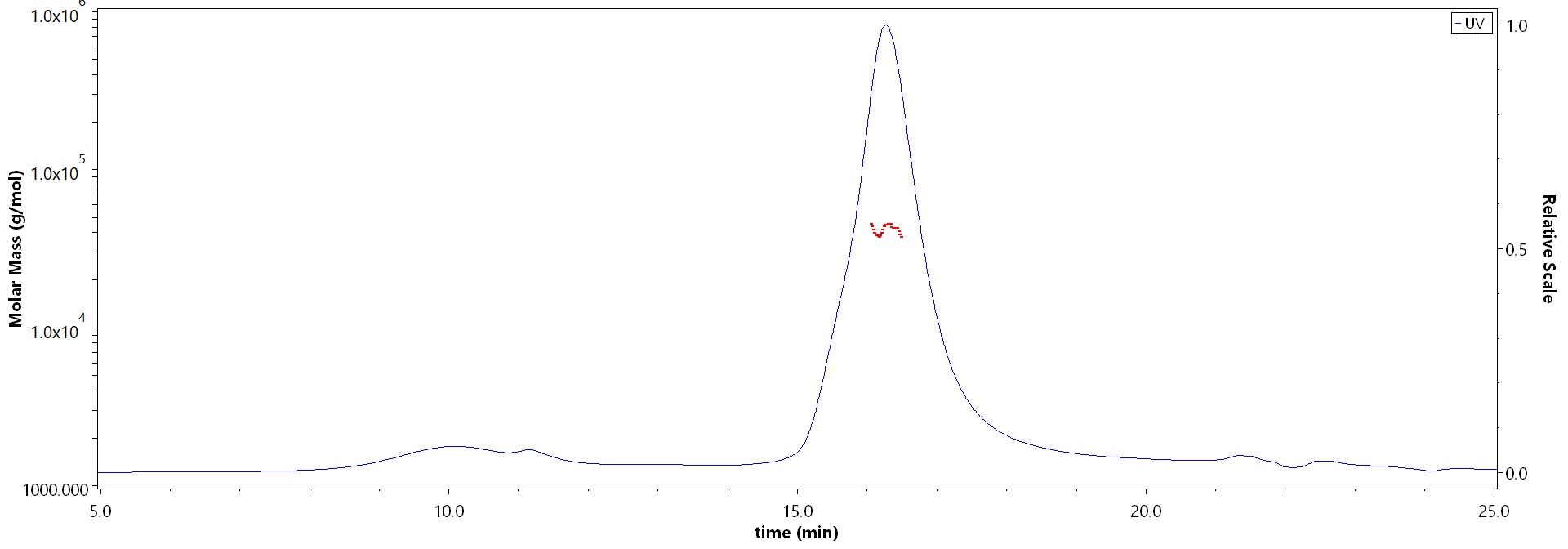Syndecans and glycosaminoglycans influence B-cell development and activationMcKenzie, Dvorscek, Ding
et alEMBO Rep (2025)
Abstract: Syndecans (SDCs) are glycosaminoglycan-containing cell surface proteins with diverse functions in the immune system with SDC1 (CD138) and SDC4 expressed in B-lineage cells. Here, we show that stem cells lacking either molecule generate fewer B-cell progenitors but give rise to mature B cells in vivo. Deletion of the plasma cell "marker" CD138 has no effect on homeostatic or antigen-induced plasma cell formation. Naive B cells express high SDC4 and encounter with cognate antigen results in transient CD138 upregulation and SDC4 loss, both further modulated by IL-4, IL-21, and CD40 ligation. SDC4 is downregulated on germinal center B cells and absent on most memory B cells. Glycosaminoglycans such as those attached to SDCs, and heparin, a commonly used therapeutic, regulate survival and activation of naive B cells by limiting responsiveness to cognate antigen. Conversely, ablation of SDC4 results in increased baseline and antigen-induced B-cell activation. Collectively, our data reveal B-cell activation- and subset-dependent SDC expression and show that SDC4 and GAGs can limit antigen-induced activation to promote B-cell survival and expansion.© 2025. The Author(s).
Systemic rewiring of dendritic cells by melanoma-secreted midkine impairs immune surveillance and response to immune checkpoint blockadeCatena, Contreras-Alcalde, Juan-Larrea
et alNat Cancer (2025)
Abstract: Cutaneous melanomas express a high number of potential neoepitopes, yet a substantial fraction of melanomas shift into immunologically cold phenotypes. Using cellular systems, mouse models and large datasets, we identify the tumor-secreted growth factor midkine (MDK) as a multilayered inhibitor of antigen-presenting cells. Mechanistically, MDK acts systemically in primary tumors, lymph nodes and the bone marrow, promoting a STAT3-mediated impairment of differentiation, activation and function of dendritic cells (DCs), particularly, conventional type 1 DCs (cDC1s). Furthermore, MDK rewires DCs toward a tolerogenic state, impairing CD8+ T cell activation. Downregulating MDK improves DC-targeted vaccination, CD40 agonist treatment and immune checkpoint blockade in mouse models. Moreover, we present an MDK-associated signature in DCs that defines poor prognosis and immune checkpoint blockade resistance in individuals with cancer. An inverse correlation between MDK- and cDC1-associated signatures was observed in a variety of tumor types, broadening the therapeutic implications of MDK in immune-refractory malignancies.© 2025. The Author(s), under exclusive licence to Springer Nature America, Inc.
Comparison of 46 Cytokines in Peripheral Blood Between Patients with Papillary Thyroid Cancer and Healthy Individuals with AI-Driven Analysis to Distinguish Between the Two GroupsBae, Bae, Oh
et alDiagnostics (Basel) (2025) 15 (6)
Abstract: Background: Recent studies have analyzed some cytokines in patients with papillary thyroid carcinoma (PTC), but simultaneous analysis of multiple cytokines remains rare. Nonetheless, the simultaneous assessment of multiple cytokines is increasingly recognized as crucial for understanding the cytokine characteristics and developmental mechanisms in PTC. In addition, studies applying artificial intelligence (AI) to discriminate patients with PTC based on serum multiple cytokine data have been performed rarely. Here, we measured and compared 46 cytokines in patients with PTC and healthy individuals, applying AI algorithms to classify the two groups. Methods: Blood serum was isolated from 63 patients with PTC and 63 control individuals. Forty-six cytokines were analyzed simultaneously using Luminex assay Human XL Cytokine Panel. Several laboratory findings were identified from electronic medical records. Student's t-test or the Mann-Whitney U test were performed to analyze the difference between the two groups. As AI classification algorithms to categorize patients with PTC, K-nearest neighbor function, Naïve Bayes classifier, logistic regression, support vector machine, and eXtreme Gradient Boosting (XGBoost) were employed. The SHAP analysis assessed how individual parameters influence the classification of patients with PTC. Results: Cytokine levels, including GM-CSF, IFN-γ, IL-1ra, IL-7, IL-10, IL-12p40, IL-15, CCL20/MIP-α, CCL5/RANTES, and TNF-α, were significantly higher in PTC than in controls. Conversely, CD40 Ligand, EGF, IL-1β, PDGF-AA, and TGF-α exhibited significantly lower concentrations in PTC compared to controls. Among the five classification algorithms evaluated, XGBoost demonstrated superior performance in terms of accuracy, precision, sensitivity (recall), specificity, F1-score, and ROC-AUC score. Notably, EGF and IL-10 were identified as critical cytokines that significantly contributed to the differentiation of patients with PTC. Conclusions: A total of 5 cytokines showed lower levels in the PTC group than in the control, while 10 cytokines showed higher levels. While XGBoost demonstrated the best performance in discriminating between the PTC group and the control group, EGF and IL-10 were considered to be closely associated with PTC.
Targeted immunotherapies for Graves' thyroidal & orbital diseasesLee, Kahaly
Front Immunol (2025) 16, 1571427
Abstract: Graves' hyperthyroidism and its associated Graves' orbitopathy are common autoimmune disorders associated with significant adverse health impact. Current standard treatments have limitations regarding efficacy and safety, and most do not specifically target the pathogenic mechanisms. We aim to review the latest development of targeted immunotherapies in these two closely related disorders.Targeted immunotherapies of Graves' hyperthyroidism have recently demonstrated clinical efficacy in early phase clinical studies. They include rituximab, an anti-CD20 monoclonal antibody which causes rapid B cell depletion; ATX-GD-59, an antigen specific immunotherapy which restores immune tolerance to thyrotropin receptor; iscalimab, an anti-CD40 monoclonal antibody which blocks the CD40-CD154 co-stimulatory pathway in B-T cell interaction; and K1-70, a thyrotropin receptor blocking monoclonal antibody. Furthermore, there have been major therapeutic advances in the management of Graves' orbitopathy. Mycophenolate has a dual mechanism of action both inhibiting the proliferation of activated B & T cells as well as the mammalian target of rapamycin growth intracellular pathway. Rituximab appears to be effective in active disease of recent onset without impending dysthyroid optic neuropathy. Both tocilizumab (anti-interleukin 6 receptor monoclonal antibody) and sirolimus (mammalian target of rapamycin inhibitor) showed promise in glucocorticoid resistant active disease. Teprotumumab, an anti-insulin-like growth factor-1 receptor monoclonal antibody, demonstrated remarkable all-round efficacy across a wide disease spectrum. Linsitinib, a dual small molecule inhibitor of insulin-like growth factor-1 receptor and insulin receptor, displayed significant proptosis reduction in its phase 2b/3 study. Finally, Batoclimab, an anti-neonatal fragment crystallizable receptor monoclonal antibody, which blocks recycling of pathogenic thyrotropin receptor antibody, showed promising signals for significant proptosis reduction, disease inactivation, overall response, and improvement of quality of life.Therapeutic advances will continue to optimize our management of Graves' hyperthyroidism and its associated orbitopathy in an effective and safe manner.Copyright © 2025 Lee and Kahaly.




 +添加评论
+添加评论






















































 膜杰作
膜杰作 Star Staining
Star Staining

















